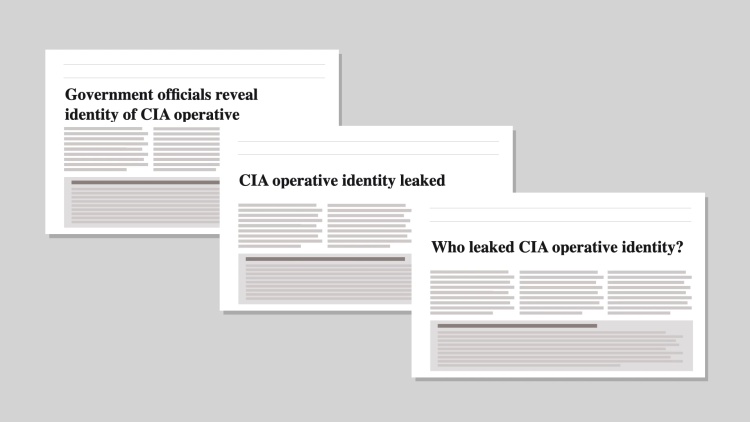In re Grand Jury Subpoena, Judith Miller
United States Court of Appeals for the District of Columbia Circuit
397 F.3d 964 (2006)
- Written by Peggy Chen, JD
Facts
Judith Miller was an investigative reporter for the New York Times. Matthew Cooper was the White House reporter for Time Magazine. In a state of the Union address on January 28, 2003, President George W. Bush claimed that Saddam Hussein sought significant quantities of uranium from Africa. On July 6, 2003, the New York Times published an op-ed from former Ambassador Joseph Wilson, who claimed that he had been sent to Niger by the CIA to investigate whether Hussein had been seeking uranium and found that he had not. On July 14, 2003, Robert Novak published an editorial in the Chicago Sun-Times where he claimed that he was told by two senior administration officials that Wilson’s selection to go to Niger was at the suggestion of Wilson’s wife, Valerie Plame, a CIA agent. As a result of the disclosure of Plame’s identity as a CIA agent, the DOJ began an investigation into which, if any, government employees had violated federal law by the unauthorized disclosure of the identity of a CIA agent. Special Counsel Patrick Fitzgerald subpoenaed Cooper and Miller, who had both reported on the controversy, with regard to the incident. Both refused to comply with the subpoenas and the District Court held them in contempt. Both appealed, claiming that they were protected by a reporter’s privilege arising from the First Amendment or common law.
Rule of Law
Issue
Holding and Reasoning (Sentelle, J.)
Concurrence (Sentelle, J.)
Concurrence (Henderson, J.)
Concurrence (Tatel , J.)
What to do next…
Here's why 907,000 law students have relied on our case briefs:
- Written by law professors and practitioners, not other law students. 47,100 briefs, keyed to 996 casebooks. Top-notch customer support.
- The right amount of information, includes the facts, issues, rule of law, holding and reasoning, and any concurrences and dissents.
- Access in your classes, works on your mobile and tablet. Massive library of related video lessons and high quality multiple-choice questions.
- Easy to use, uniform format for every case brief. Written in plain English, not in legalese. Our briefs summarize and simplify; they don’t just repeat the court’s language.





